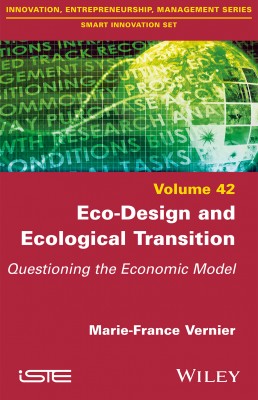
Successive IPCC reports consistently stress the devastating impact of human activity on the climate. An ecological transition seems essential to modify our economic and social system, while meeting the needs of current and future generations.
As the main culprits of environmental destruction, companies must modify their production methods to reduce their negative impact on the environment. Eco Design and Ecological Transition presents an innovative approach to eco design, a method that aims to offer products or services with a reduced environmental impact compared to conventional production methods, from the extraction of resources to the end of the product’s life.
The book also analyzes the potential of the circular economy and frugal innovation. It shows that innovation, to be sustainable, must be both environmentally and socially sustainable. From a systemic point of view, it examines the ability of players, particularly companies, to change their strategies in order to combine human well-being and respect for the environment in the context of ecological transition.
1. The Environmental Impact of the Contemporary Economic Model.
2. Eco-design: Definitions and Theoretical Outlines.
3. Eco-design in Companies: Practices and Decisive Actions.
4. Questions and Perspectives on Eco-design.
Marie-France Vernier is a teacher-researcher at ESDES Lyon Business School, France. Her research focuses on environmental innovation, in particular eco-design methods, the circular economy and corporate social responsibility.